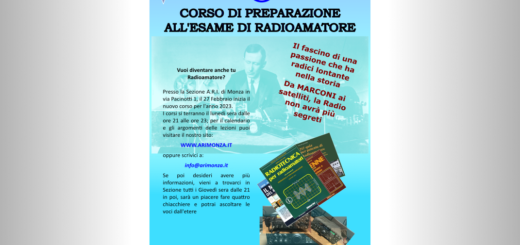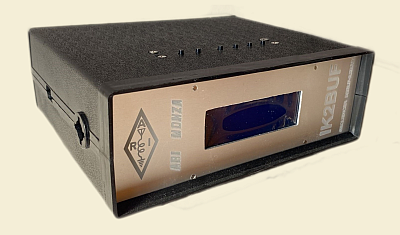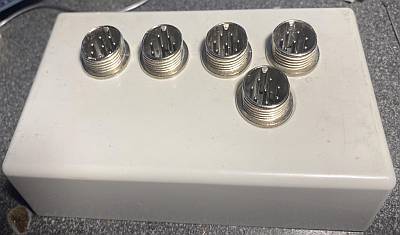18 ottobre 2019
> ARISS school contact planned for Teningen, Germany > > An International Space Station school contact has been planned for Luca Parmitano KF5KDP with participants at Science & Technologie e.V. / event: Science Days, Teningen, Germany. > > The event is planned Friday October 18, 2019. It is scheduled to begin at approximately 09.37 UTC, which is 11.37 CEST. > > The contact will be conducted in English. > > The contact will operated by DN1EME. The downlink signals will be audible in parts of Europe on 145.800 MHz FM. > > This ARISS Europe News Bulletin is distributed to 2700 subscribers. > > > > A School Information: > > Science Days > > The Science Days is the first German science festival, which was founded in 2001. Around 15.000 students of different school levels attend this science festival every year. The Science Days are located in Germany’s biggest family park “Europa-Park” in Rust and are organized by Science & Technologie e.V., a non-profit organization. > > > GHSE School > > The questions for the contact come from students of GHSE. GHSE stands for “Gewerbliche und Hauswirtschaftlich-Sozialpflegerische Schulen Emmendingen” in Germany and offers education with a special vocational focus on industry, ecotrophology as well as applied social sciences. The industry-focused part of the school was already founded in 1836 and has since been evolving into a wide variety of educational directions for all sorts of students with all kinds of different talents and interests. Our campus includes a large workshop-area. GHSE offers educational qualification ranging from a “Hauptschulabschluss” (certificate of secondary education) up to the “Abitur” (general qualification for university entrance) and is also a vocational college within the German dual education system. There are currently around 2100 enrolled students at GHSE. 45% of them attend the “Berufsschule” (vocational college). Around 16% are found in the applied social sciences field. The rest is distributed among other areas such as care-giving, information technology, management, mechatronics and several other fields. > > > Students First Names & Questions: > > 1. Klara: Can you describe what the feeling when the rocket was launched? > > 2. Fabian: What were your first impressions when you arrived at the ISS? > > 3. Kim: How did your family react when they learned about your trip into space? > > 4. Lukas: Which time zone are you using on ISS and do night and day light changes play a role at all for your working day? > > 5. Janina: How does it feel to float in space and how do you like zero gravity? > > 6. Nils: We’ve heard that there are no windows in direction of outer space. Why is that and how does it feel like to see the stars from the station or during an outdoor mission? > > 7. Lea: The laws of which country are applicable in the ISS and in general there in space and do you have to pay tax for the money you earn in space? Who pays your wages? > > 8. Willi: Are there any scientific discoveries or important experiments which have been recently made? > > 9. Marius: Can see you visible changes occurring through the climate change? > > 10. Berna: Who makes decisions regarding, for example, who is allowed to do a space-walk? The space agencies or the commander? > > 11. Svenja: Have you or another astronaut ever lost something on the ISS? > > > 12. Felix: Do you think the Bosch reactor will be successfully implemented soon and how will it affect the ISS? > > 13. Jakob: What do you think about space tourism? > > 14. Lara: Are private conversations with your family also allowed or do all conversations have to be carried out through the space agencies? > > 15. Daniel: Was it worth it to put so much work into aerospace, now where you see the results or are you disappointed? > > 16. Lea: What is the weirdest thing you have on the ISS? > > 17. Lukas: What do you do in order to prevent injuries and what medical equipment do you use in the case of an emergency? > > 18. Sam: What did you regret or miss when you flew into space? > > 19. Pascal: What was the biggest damage you had to repair in the ISS and what happens with an ISS module if it’s irreparably damaged? bout ARISS: > > > About ARISS > > Amateur Radio on the International Space Station (ARISS) is a cooperative venture of international amateur radio societies and the space agencies that support the International Space Station: NASA, Russian Space Agency, ESA, JAXA, and CSA. The US Center for the Advancement of Science in Space (CASIS) and the National Aeronautics and Space Administration (NASA) provide ARISS special support. > > ARISS offers an opportunity for students to experience the excitement of Amateur Radio by talking directly with crewmembers on board the International Space Station. Teachers, parents and communities see, first hand, how Amateur Radio and crewmembers on ISS can energize youngsters’ interest in science, technology, and learning. > > The primary goal of ARISS is to promote exploration of science, technology, engineering, and mathematics (STEM) topics by organizing scheduled contacts via amateur radio between crew members aboard the ISS and students in classrooms or informal education venues. With the help of experienced amateur radio volunteers, ISS crews speak directly with large audiences in a variety of public forums. Before and during these radio contacts, students, teachers, parents, and communities learn about space, space technologies, and amateur radio. For more information, see www.ariss.org, www.ariss-eu.org and www.amsat-on.be/hamtv-summary/.






